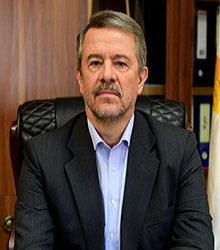
Iran’s oil and power sectors have, in recent years, directly and indirectly made up a significant portion of the country’s national production And because of their nature and importance, they have been influenced by the international and national environment more than any other economic sector.
Recent structural developments in international markets, caused by oil and gas production from unusual structures, especially Shale, business conducts incompatible with international law and practice, the accelerated development of renewable energies and their consumer equipment, have posed serious threats to traditional markets and organizations such as OPEC.
In the coming years, it is not unlikely that rivalry within OPEC will intensify and having surplus production capacity becomes vital for its core members, including Iran and the issue of production from oil and gas resources will sooner or later be of particular importance.
Although international sanctions have slowed the development of these sectors, especially the oil industry, domestic support can help reduce production barriers, increase productivity and boost other sectors of the economy.
Organizing the structure of the relationship between the public and private sectors, including the adoption of laws and policies appropriate to economic activity by parliament and the government, regulate and monitor its implementation by independent entities, as well as the private sector’s commitment to the growth and development of business In the field of development, production, distribution and consumption of renewable and non-renewable energies, it will give new life to the prosperity of related activities and increase national productivity.
Also, given the dominant role of the government in managing the Iranian oil industry, especially in the upstream sector, it is possible to increase the efficiency of the National Iranian Oil Company in exploration, development and production operations, as well as by supporting the establishment of an economic system. It is also possible to compete in this field with the support of Iranian E&P NGOs.
In addition, given the presence of young, educated, creative and ready-to-work human resources in the country, supporting the establishment of knowledge-based and start-up companies and guiding their activities in the direction of providing goods and services, the need for the oil and power sector as well as a more serious entry into the field of renewable energies can provide enormous and lasting support for business and technology development in the country.
The Fifth Iranian Petroleum and Energy Club Congress & Exhibition (IPEC 2019) provides an opportunity for discussion among all stakeholders and decision makers on these issues. Panels are structured in such a way to provide an appropriate framework for productive dialogue between business executives, experts and business stakeholders in these sectors.
I hope that the results of these talks will pave the way for a new and effective way for the country’s energy sector, which is at one of its most critical times.
Seyed Mehdi Mir Moezi
Head of the Policy Council

